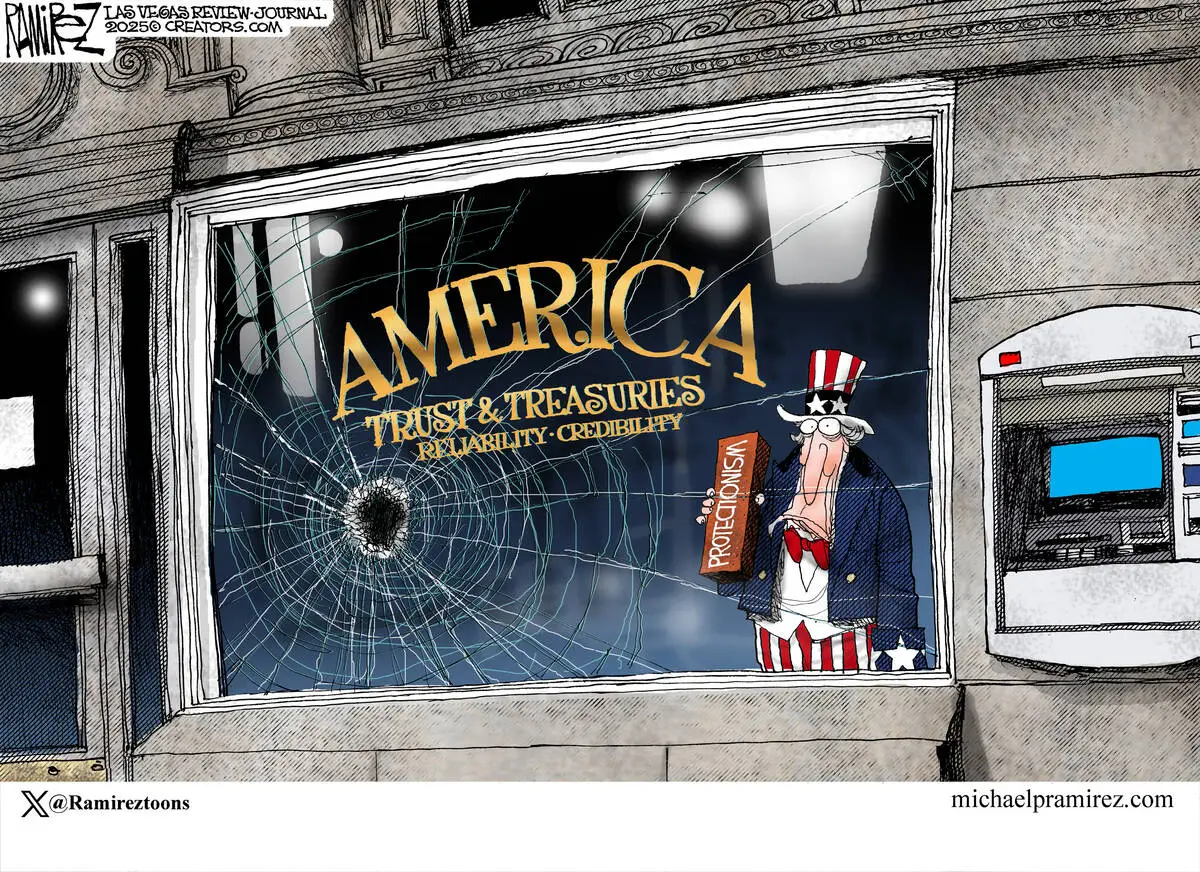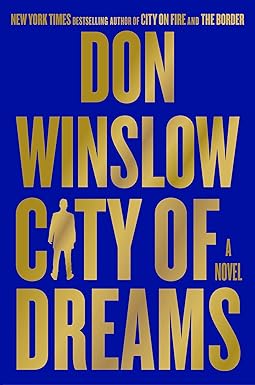… although, technically, this might not be one:
I think I'm on more solid ground with Daniel Lyons' essay at AEI: Bastiat and What is Not Seen in Tech Policy.
Over at The Dispatch, AEI Senior Fellow Jonah Goldberg recently praised Frédéric Bastiat’s classic essay, “That Which is Seen, and That Which is Not Seen.” Goldberg cited the piece to critique the Trump administration’s seemingly-attractive-but-deeply-flawed approach to trade. I’ve found that this short 1850 treatise is equally illuminating when assessing 21st century tech policy.
As the title suggests, Bastiat’s core insight is that people fixate on immediate, visible outcomes while ignoring hidden costs. He illustrates this with a parable: A baker’s son breaks a shop window. Spectators chide the baker’s anger, arguing that the broken window benefits the economy by providing employment for the repairman. But Bastiat notes that this analysis is incomplete: The six francs spent to replace the window could have bought something else—a new pair of shoes, or a new book for his library. Assessing the broken window requires consideration both of what is seen—the glazier who blesses the careless child—and also the unseen cost to the baker (who must forgo the shoes) and the shoemaker (who lost a sale). As Goldberg notes, Bastiat’s simple parable provides an excellent introduction to the economic concept of opportunity costs and the importance of thinking through unintended consequences.
But it's not just trade policy of course; the seen/unseen feature extends to tech policy too, for example:
In tech policy, “what is not seen” often involves stifled innovation—products or services that never emerge due to regulation. Net neutrality offers a clear example. Advocates celebrated its visible effects: bans on blocking, throttling, and paid prioritization preserved existing network management practices, allowing competition among internet-based edge providers. But these rules prevented broadband companies from experimenting with alternative business models. For example, in 2014, Sprint sought to offer a wireless plan with unlimited talk, text, and one social media app of your choice at a lower price than its unlimited broadband plan. But it scrapped the idea when critics complained it violated net neutrality by favoring one service over others. Such plans thrived abroad but remained unseen in US markets, to the detriment of budget-conscious American consumers. In 2024, similar concerns arose that net neutrality could hinder network slicing, a 5G innovation enabling customized network performance but which potentially violated prioritization rules.
And more examples exist at the link. Finally, Tyler Cowen provides a chuckle with his headline: Bastiat's revenge. He points to a San Francisco Chronicle article titled (as I type): San Francisco auto glass shops suffering as car break-ins drop. (Semi-paywalled, archived here.)
At the height of San Francisco’s car break-in epidemic, phones were ringing non-stop at glass repair shops, and business was booming.
“We used to get 60 to 80 calls a day,” said Hank Wee, manager of In & Out Auto Glass, a large garage on Bayshore Boulevard. He remembered how the shop was abuzz in 2017, a year when thousands of people returned to their cars to find windshields splintered and glass lodged in their door frames.
But now that the city’s most aggravating property crime has hit a 22-year-low, calls to In & Out and other repair shops have dropped. And dropped.
I'm sure Hank Wee has already received multiple pointers to Bastiat's essay. No need for us to pile on.
Also of note:
-
Fallacies can be addictive. And none more so than Fentanyl Fallacies, amirite? Kevin D. Williamson writes:
Fentanyl is a wonder drug.
Not only is it useful for managing severe pain (e.g., for cancer patients and burn victims) but it also provides policy cover for … whatever.
Donald Trump’s senior economic adviser, Kevin Hassett, knows that Trump’s tariff policy is dumb and destructive, and it is very difficult to make an economic case for it, so he insists that the tariffs are really part of a fentanyl interdiction policy. Trump would like to blame illegal immigrants for everything from heartbreak to psoriasis, and he reliably invokes fentanyl trafficking in his litany of immigration denunciations.
The problem is that—as so often is the case with Trump and his sycophants—the facts do not quite line up with the story he would like to tell.
Relevant facts, summed up in KDW's subhed: "Illegal immigrants aren’t the ones bringing it in, and overdose deaths are decreasing."
But a final fact remains: "there were about 87,000 overdose deaths in the United States in the 12 months ending in September 2024". Attributable in large part to the "war on drugs".
-
Like a library book left at the beach last summer… The NR editors say Defunding PBS and NPR Is Long Overdue.
President Trump is expected to push for ending $1.1 billion in federal funding for the Corporation for Public Broadcasting, the organization that funnels taxpayer money to PBS and NPR.
Under the move, he would send a memo to Congress asking them to either rescind the funding, or restore it. The rescission process is not subject to the Senate filibuster, so only a majority of both houses need to concur with the president’s request. House and Senate Republicans should seize the opportunity to cut off the broadcasters.
In principle, there is no reason why the federal government should be in the business of funding news and entertainment programming. It does not serve an essential purpose and could easily be financed privately. But if the government is going to be in the broadcasting business, it should at least not be one-sidedly political.
Put on your Nikes and Just Do It, Congress.
-
So you're saying there's a chance! George Will looks at the odds in favor: The Supreme Court gets a chance to rebuke schools’ bullying wokeism.
In this centennial year of two memorable events in the fraught history of public K
-12 education, Montgomery County, a progressive Washington suburb, has kindled another controversy about government power and parental rights. On Tuesday, the Supreme Court will hear oral argument concerning whether children can be exempted from instruction that their parents consider contrary to their religious beliefs. The parents say this compulsory instruction violates their First Amendment right to the free exercise of religion.In November 2022, the county’s board of education mandated for elementary school pupils “LGBTQ-inclusive” storybooks featuring gender transitions, same-sex playground romance, and questioning “cisnormativity” and “power hierarchies.” The picture book “Pride Puppy!” asks students to search a Pride Parade for “underwear,” “leather” and a “lip ring.” Another picture book invites kindergarten through fifth-grade readers to ponder what it means to be “nonbinary” and asks “what pronouns fit you?”
So those kids in Bethesda, Silver Spring, and Olney may not know how to read, or add, but they'll fer darn tootin' be able to spot lip rings.
Note this is not a "censorship" case; parents are simply asking to have their kids unexposed to Pride Puppy! and the like.
-
Turned out "Liberation Day" was followed pretty quickly by… … people being liberated from wage slavery! As Eric Boehm reports: Trump's tariffs are starting to kill American jobs.
The Trump administration believes that high tariffs will boost the prospects of American manufacturing, but one iconic truck company is now preparing to lay off hundreds of workers—because of the tariffs.
For more than a century, the Mack Trucks plant on the outskirts of Allentown, Pennsylvania, has been churning out heavy equipment to haul stuff from place to place. It is one of the largest employers in the region, providing hundreds of the good-paying, blue-collar jobs that President Donald Trump and his allies want to promote in America.
Some of those jobs are about to disappear. Mack Trucks will lay off between 250 and 350 workers over the next few weeks, the Pennsylvania Capital-Star reports. A company spokesperson told the Capital-Star that the layoffs are due to "market uncertainty about freight rates and demand" and "the impact of tariffs."
As Peter, Paul and Mary used to sing: Take me for a ride in your Mack Truck… Mac. :
| Recently on the book blog: |


![[The Blogger]](/ps/images/barred.jpg)



